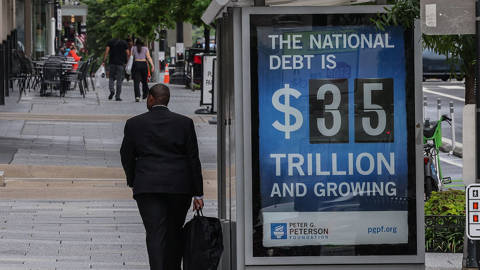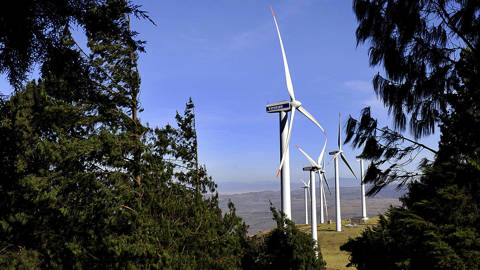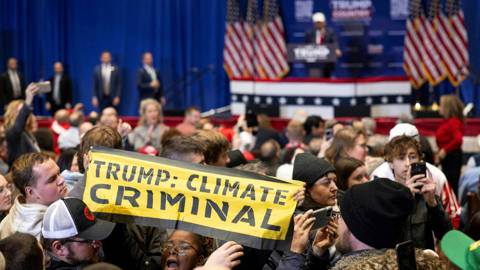Over the past 20 years, environmental policies have been decided behind closed doors – with little input from the people who will be most affected by the negotiations. The good news is that a new pattern of citizen participation is emerging, especially in developing countries, as new voices and fresh ideas enter the debate.
SAN JOSÉ – Over the past 20 years, environmental, energy, and climate policies have been decided behind closed doors – with little input from the people who will be most affected by the outcome of the negotiations. Policy design has been driven by technocratic considerations that ignored or was simply uninterested in ordinary people’s priorities. As a result, clean air, renewable energy, and green spaces have all too often been sacrificed to the notion that environmentally friendly legislation increases costs and red tape for businesses and ultimately hurts the economy.
The good news is that a new pattern of citizen participation is emerging, especially in developing countries, with new voices and fresh ideas entering the debate. Around the world, citizens are demanding that their governments listen to them about environmental issues and put their needs and priorities first.
For years, the debate around environmental action in the United States and Europe was characterized by a focus on abstract principles and by political infighting. To some extent, this was understandable. Opposition to environmental action – from the fossil-fuel industry, political parties, and portions of the media – has been formidable.
But the result was a discussion that was far removed from the issues that are most important to ordinary people. Instead of discussing how ineffective public transport and polluted air was making life worse for billions of people, the talk centered on carbon trading, emissions trajectories, and the industrialization of China.
Fortunately, the discussion is now being brought back down to earth. In less than 35 years, some 66% of the global population will live in cities. Much of this urban growth will occur in developing countries, especially in Africa. In Latin America, nearly 80% of people already live in urban centers.
For city dwellers, the environment can be an existential priority. If droughts continue to threaten the water supply of São Paolo, for example, Latin America’s most populous city could be at risk of urban failure. This crisis – and others like it – provides an opportunity for citizens to take control and deploy innovative solutions that might inspire others.
When national and municipal governments ask people about their priorities and needs, the answer is clear. Chile’s government set a precedent in the region by meticulously mapping citizens’ priorities on the environment and climate. According to the government’s poll, air pollution is Chileans’ top environmental priority (33%), followed by waste (21%) and noise (11%).
Costa Ricans also see air pollution as an environmental priority (22%), followed by waste (20%) and water (17%), according to a poll conducted by the United Nations Development Programme. In China, environmental protection is increasingly becoming a top public concern, as evidenced by a journalist’s recent self-financed film about air pollution, which attracted 200 million viewers in a single week. In today’s world, people expect more from their countries and cities than growth and shopping centers.
An IDB poll of 5,000 citizens in Bogotá, Buenos Aires, Lima, Mexico City, and São Paulo revealed that they want more transparency in city government, more participation in decision-making, and a better quality of life. This poll, along with those from Chile and Costa Rica, shows that citizens understand that climate change will affect them. They want governments to do more, not less, to protect the environment.
As we develop a better understanding of ordinary people’s needs and priorities, those negotiating a global agreement at the United Nations Climate Change Conference in Paris later this year would be wise to take note. Opaque decisions and unexplained priorities are unlikely to receive public support. For that reason alone, it is crucial that governments make their citizens’ concerns the top priority.
Chile has set a positive precedent in the developing world by carrying out extensive consultations on its national climate commitment for Paris. Mexico and Brazil have launched formal consultation processes, too. Other countries in the region might follow suit.
National and local politicians are being held to increasingly higher standards of environmental protection. A new era of citizen involvement and public scrutiny has begun, creating opportunities for truly inclusive environmental action that promise to achieve more than elites negotiating behind closed doors ever could.











SAN JOSÉ – Over the past 20 years, environmental, energy, and climate policies have been decided behind closed doors – with little input from the people who will be most affected by the outcome of the negotiations. Policy design has been driven by technocratic considerations that ignored or was simply uninterested in ordinary people’s priorities. As a result, clean air, renewable energy, and green spaces have all too often been sacrificed to the notion that environmentally friendly legislation increases costs and red tape for businesses and ultimately hurts the economy.
The good news is that a new pattern of citizen participation is emerging, especially in developing countries, with new voices and fresh ideas entering the debate. Around the world, citizens are demanding that their governments listen to them about environmental issues and put their needs and priorities first.
For years, the debate around environmental action in the United States and Europe was characterized by a focus on abstract principles and by political infighting. To some extent, this was understandable. Opposition to environmental action – from the fossil-fuel industry, political parties, and portions of the media – has been formidable.
But the result was a discussion that was far removed from the issues that are most important to ordinary people. Instead of discussing how ineffective public transport and polluted air was making life worse for billions of people, the talk centered on carbon trading, emissions trajectories, and the industrialization of China.
Fortunately, the discussion is now being brought back down to earth. In less than 35 years, some 66% of the global population will live in cities. Much of this urban growth will occur in developing countries, especially in Africa. In Latin America, nearly 80% of people already live in urban centers.
For city dwellers, the environment can be an existential priority. If droughts continue to threaten the water supply of São Paolo, for example, Latin America’s most populous city could be at risk of urban failure. This crisis – and others like it – provides an opportunity for citizens to take control and deploy innovative solutions that might inspire others.
BLACK FRIDAY SALE: Subscribe for as little as $34.99
Subscribe now to gain access to insights and analyses from the world’s leading thinkers – starting at just $34.99 for your first year.
Subscribe Now
When national and municipal governments ask people about their priorities and needs, the answer is clear. Chile’s government set a precedent in the region by meticulously mapping citizens’ priorities on the environment and climate. According to the government’s poll, air pollution is Chileans’ top environmental priority (33%), followed by waste (21%) and noise (11%).
Costa Ricans also see air pollution as an environmental priority (22%), followed by waste (20%) and water (17%), according to a poll conducted by the United Nations Development Programme. In China, environmental protection is increasingly becoming a top public concern, as evidenced by a journalist’s recent self-financed film about air pollution, which attracted 200 million viewers in a single week. In today’s world, people expect more from their countries and cities than growth and shopping centers.
An IDB poll of 5,000 citizens in Bogotá, Buenos Aires, Lima, Mexico City, and São Paulo revealed that they want more transparency in city government, more participation in decision-making, and a better quality of life. This poll, along with those from Chile and Costa Rica, shows that citizens understand that climate change will affect them. They want governments to do more, not less, to protect the environment.
As we develop a better understanding of ordinary people’s needs and priorities, those negotiating a global agreement at the United Nations Climate Change Conference in Paris later this year would be wise to take note. Opaque decisions and unexplained priorities are unlikely to receive public support. For that reason alone, it is crucial that governments make their citizens’ concerns the top priority.
Chile has set a positive precedent in the developing world by carrying out extensive consultations on its national climate commitment for Paris. Mexico and Brazil have launched formal consultation processes, too. Other countries in the region might follow suit.
National and local politicians are being held to increasingly higher standards of environmental protection. A new era of citizen involvement and public scrutiny has begun, creating opportunities for truly inclusive environmental action that promise to achieve more than elites negotiating behind closed doors ever could.